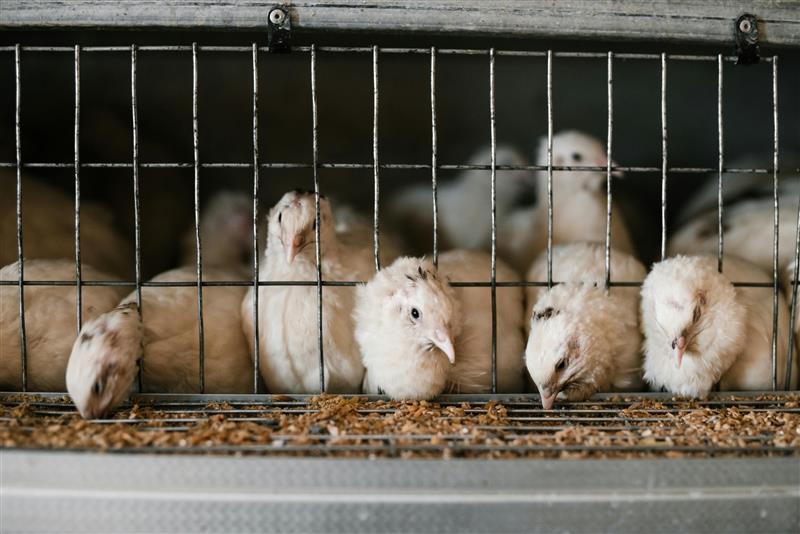
At COP30 in Belém, Brazil, leaders and experts discuss factory farming’s role in climate change, exploring its environmental impact and pathways toward more sustainable food systems.
Factory farming's role in climate change is a major topic of discussion at the ongoing Conference Of Parties COP30, taking place from the 10th of November to the 21st of November, 2025, as organizations and activists highlight the animal agriculture and meat industry's connection to deforestation, emissions, and animal suffering. While the conference aims to place a greater focus on sustainable and resilient agriculture to tackle climate change and environmental damage, some groups are actively campaigning against factory farming by advocating for more humane and regenerative practices.
COP30, taking place this year in Belém, Brazil, is a critical moment for these discussions, particularly regarding how to make food systems a central part of climate action plans that help us to plan for the future. Over the years, particularly in the twenty first century, there has been a tremendous awareness on the nature of factory farming with regard to cruelty to animals, environmental damage, wastage of resources and contribution to climate change.
Factory farming's impact at COP30 that is under examination by different NGO groups
- Climate emissions: Factory farming is a significant contributor to greenhouse gas emissions, and the expansion of these farms often involves deforestation of pristine forest areas like the Amazonian rainforest in Brazil, which releases stored carbon.
- Animal suffering: Critics of factory farming highlight the cruelty and suffering of animals confined in these intensive systems, including cattle and chickens, which they argue is unsustainable, immoral and incompatible with a just transition to a more humane and environmentally sustainable food system.
- Deforestation and biodiversity loss: Industrial livestock production is a major driver of deforestation and habitat loss, particularly in critical ecosystems, according to organizations like World Animal Protection, which have stated that numerous endangered species like the Jaguar and different kinds of primates are under threat from destruction of their habitat by factory farming.
Data Needs on Factory Farming in India
In India, there is limited understanding on the nature of environmental damage and animal cruelty involved in factory farming. There is also a deficit of data and information on how intensive animal rearing for meat and dairy is affecting the wellbeing of animals and the environment. There is some preliminary indication that factory farming of chickens in India is inimical to animal wellbeing and the environment. There have also been some studies that antibiotics being used in factory farming is affecting humans and animals adversely in intensive factory farming situations in India. This is an area that needs further examination.
What are the economics of cattle grazing in India for either dairy or meat production?
It is also the need of the hour in India to determine if cattle being raised for beef in India contribute significantly to forest cover loss and in turn, to climate change. We still do not know if cattle grazing in India involves an element of rearing the animals for meat and the extent of damage caused to the forests in which these animals graze. What is the economics of cattle grazing in India for either dairy or meat production? What kind of waste from slaughterhouses and dairy farms are affecting the environment? To what extent are the meat and dairy farms contributing to pollution of water and air in India due to their practices? We still do not know to what extent big meat processing companies like JBS indirectly or directly affect Indian policies on meat production.
Eat Right India and LiFE
The government of India is encouraging people to subscribe to "Eat Right India," a public health initiative led by the Food Safety and Standards Authority of India (FSSAI) to improve food safety and promote healthy eating habits through regulatory and collaborative efforts. The Indian government's "LiFE" programme refers to "Lifestyle for Environment," a global mass movement launched by Prime Minister Narendra Modi at COP26 in 2021. It promotes sustainable living by encouraging individuals and communities to adopt environmentally conscious practices, moving away from "mindless consumption" towards "mindful utilization" of resources. The program aims to create a global network of "Pro-Planet People" (P3) who commit to and promote eco-friendly lifestyles. We hope that the Indian government will integrate concerns on factory farming and meat eating into these initiatives to emphasise a shift to plant based protein.
World Animal Protection and COP30
World Animal Protection hopes that the ongoing COP 30 meeting in Belem will deliberate on some of these principles enunciated above to ensure that concerns for climate change and animal welfare are suitably pivoted into political initiatives that result in policies that are beneficial to national and international interests. A more humane world that tackles change is one that benefits animals, people and the environment and the one we aspire to live in.
Shubhobroto Ghosh, Wildlife Campaign Manager, World Animal Protection